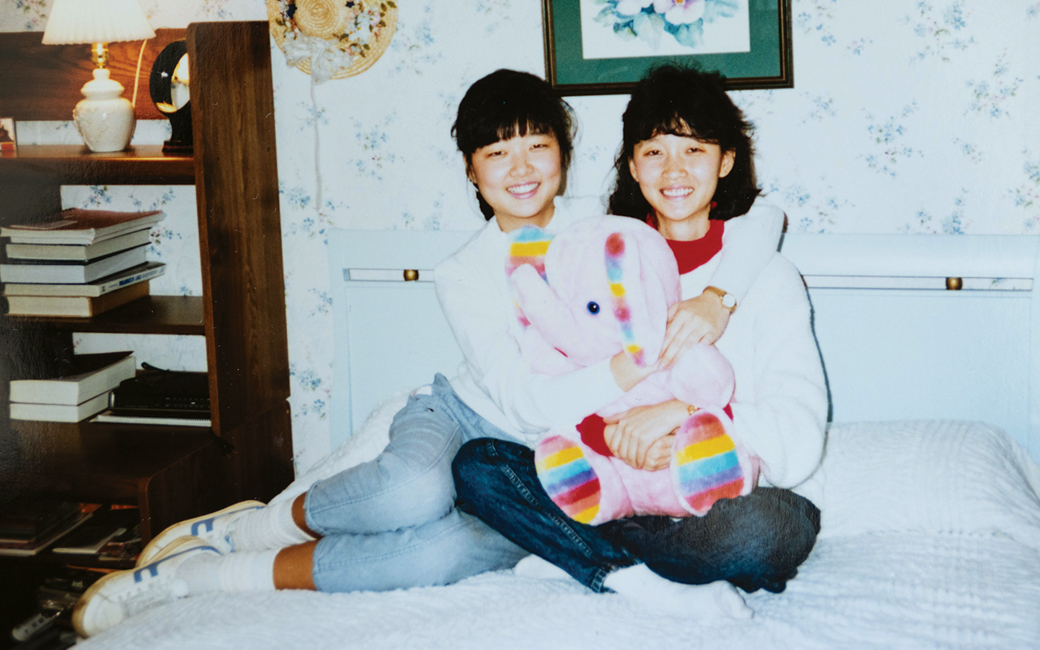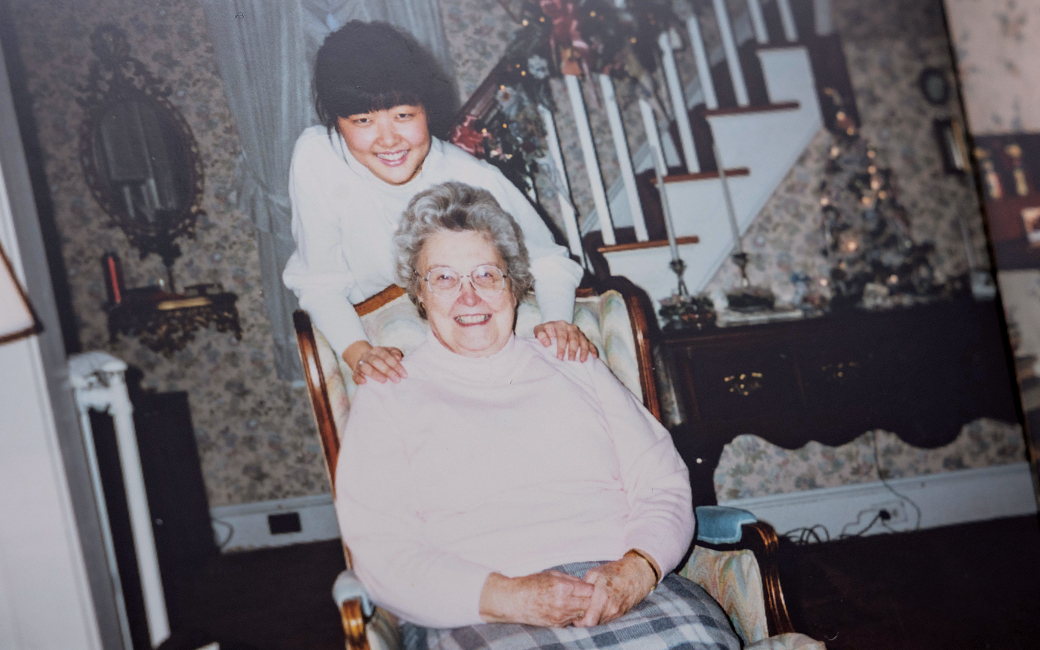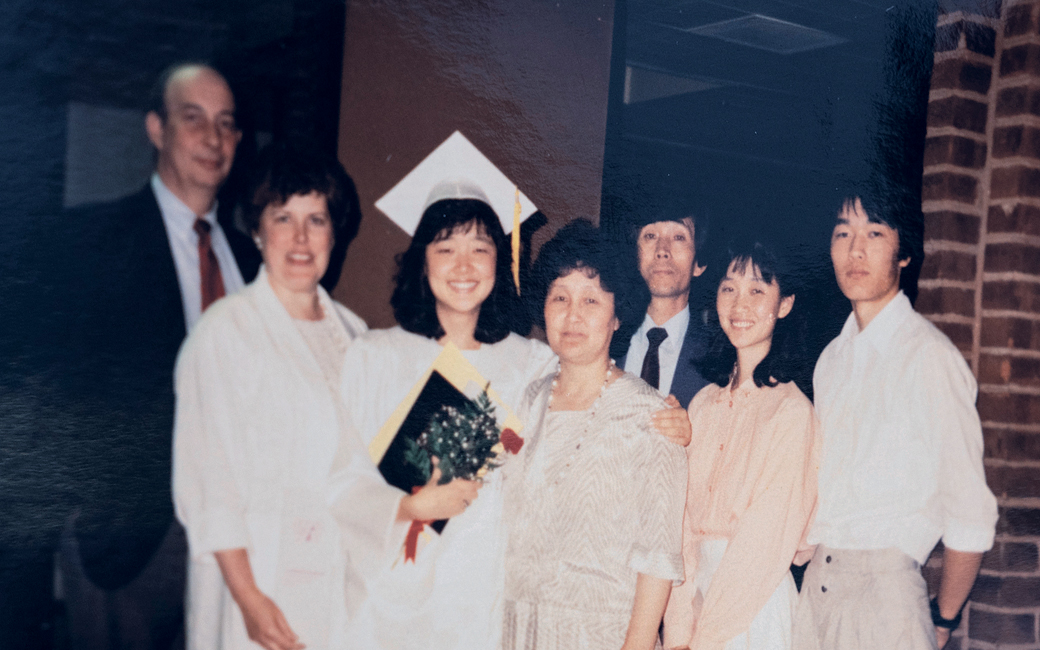
The ‘Wonderful Gift’ of Friendship
Jean Herbert ’82 and Esther Lim ’92 formed a bond that transcended language.
By Mike Unger
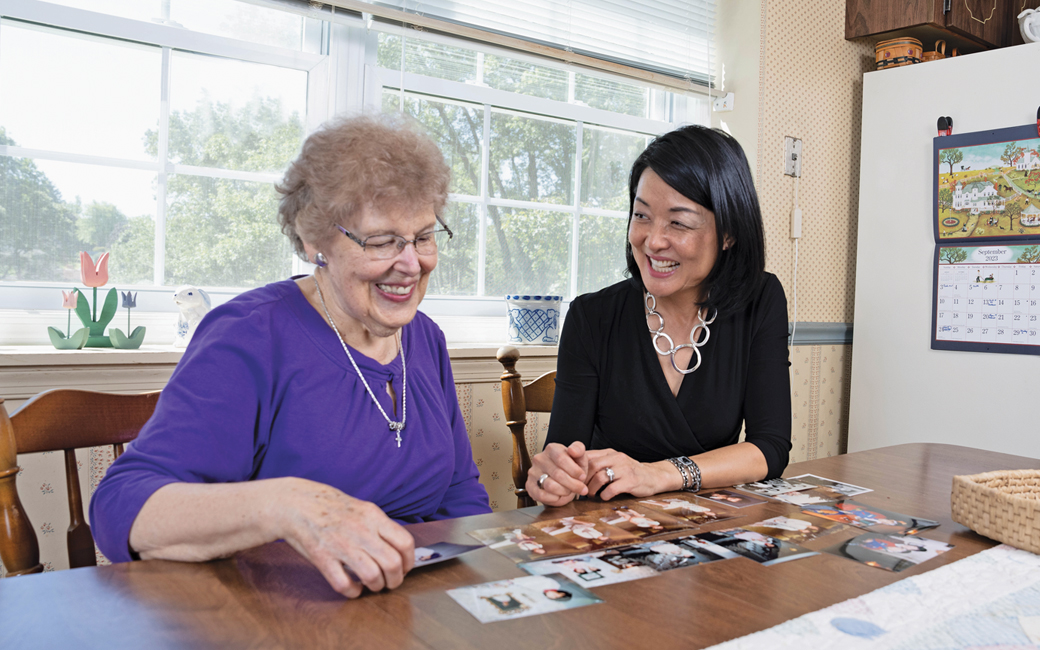
On May 23, 1983, Esther Lim took a seat in Jean Herbert’s seventh grade classroom.
Neither of them knew how to approach the other. Lim ’92, who had immigrated to the United States with her parents and three siblings four days earlier, did not speak a word of English. Herbert ’82, who was a long-term substitute science teacher in Joppa, Maryland, did not know any Korean.
That day changed both of their lives forever.
Lim was terrified. The only Asian at the school, she couldn’t comprehend her teachers, read the blackboard or make heads or tails of the textbooks. In most of her classes she was essentially a ghost. She sat quietly, ignored while the world moved around her.
“I was basically a bench warmer,” says Lim, 52, an attorney and past president of
the 110,000-
member D.C. Bar. “It was a blessing in my life that Mrs. Herbert was at Magnolia Middle
School at a time when I couldn’t speak or understand a word of English. She still
saw me.”
Herbert had no experience teaching English, or any other language for that matter. But looking at the scared, shy Lim, her instincts took over.
“She was just so precious,” Herbert says. “I was determined that she was not going to just sit there. So I got a map and helped her understand how she came to the United States. She couldn’t speak English so I couldn’t have her writing things, so I tried to do visual things with her.”
The two are sitting at the kitchen table in Herbert’s home in Fallston, Maryland on a picturesque September afternoon. It’s the same table, in the same house, where over the course of several years, Herbert taught Lim—and her family—English. As they look at old photographs, recalling memories from four decades of their unlikely friendship, their hands occasionally touch. Their bond is obvious.
“She did her best from the very beginning. She was so eager to please,” says Herbert,
86.
“She endeared herself to me. I thought, ‘I wish I had more time with her.’ There was
something about Esther. She had a thirst to learn. You don’t always see that in students,
especially at that age.”
Many didn’t see it in Lim; others didn’t bother looking. But to Jean Herbert, it couldn’t
have been clearer.
Herbert was born to teach. From the time she was 5 or 6, it was all she wanted to do.
“When we used to play school, I was the teacher,” she says. “I just loved getting
somebody
to complete the assignment that I gave. I always had the natural desire.”
But her father passed away when she was 14, and she devoted the subsequent years to helping her mother. Soon she had her own family; she and her late husband, Richard, have three sons.
It wasn’t until she was in her 40s that Herbert seriously considered attending college.
“My children were grown. I was free to do something with my life,” she says. “I did not want to sit home and play bridge. I wanted to do something meaningful. I felt like this was the time.”
She started her journey at Harford Community College before transferring to TU. There,
she
encountered classmates a generation younger, including two special ones: her sons
Jon and
David ’82. (She never attended classes with them.)
“Towson was just wonderful,” she says. “The teachers would challenge your thinking.”
After Herbert graduated with a bachelor’s degree in elementary education, she landed a long-term substituting job at Magnolia Middle. Lim’s path to that same school was vastly different. She grew up near Haeundae Beach in South Korea. Her father was a pastor, and money was scant. The family didn’t have running water or indoor plumbing, and often, Lim says, they didn’t know where their next meal would come from. In search of a better life, her father moved the family to Maryland, where he established a church in Edgewood. Why there, of all places? “It was God’s will,” he said.
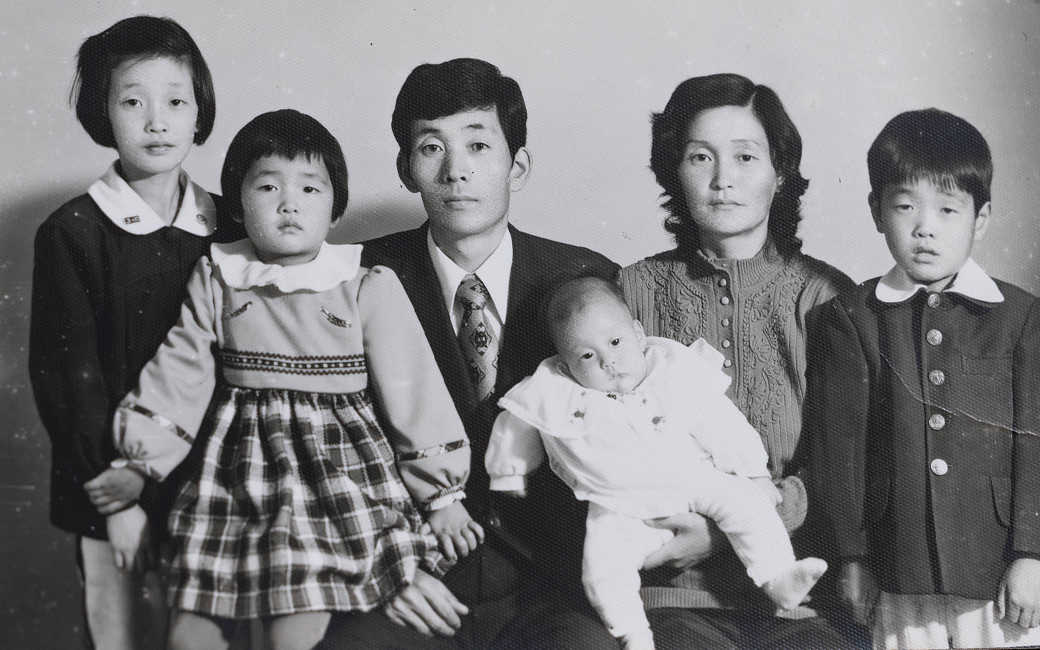
Three days after they arrived, he announced to his four children that they would be going to school the next day. The thought of starting school on Monday morning paralyzed Lim.
“I was so shocked,” Lim recalls. “I remember saying, ‘But we don’t speak any English,
how can
we start school?’ He said, ‘That’s how you’re going to learn.’”
After those final three weeks of school in spring 1983, Herbert called Lim’s father, the only member of the family who spoke English. She wanted to encourage him to get Esther English tutoring over the summer, so she would enter eighth grade with at least a basic understanding of the language.
“I told him, ‘This is precious time. You need to find somebody to help her learn English,’” Herbert says. “He said, ‘Do you teach?’ So help me to this day, I don’t know where the voice came from, but somebody inside me said, ‘I think I can do it.’”
But the conversation wasn’t over.
“Before I could finish, he said, ‘I have three other children. And a wife,’” Herbert
recalls. Her stint as a (group) English tutor was about to begin.
That summer Lim’s father would drive his wife and Esther, her two sisters and one brother to Herbert’s
house for English lessons three times a week. Herbert never mentioned money, but occasionally,
on his own volition, Lim’s father would mow the Herberts’ lawn or work in the yard
during the lessons. The labor was his form of payment.
There were no textbooks. Rather, in preparation for the lessons, Herbert would cut out photos from magazines like Good Housekeeping, Family Circle and Woman’s Day. The original cut and paste, Lim jokes.
“We started with very simple things, like, this is a girl,” Herbert says. Each of her students would then repeat the statement. “We’re going to make up a sentence about this girl. I’m going to do it first, and then I want you to repeat it. We’d go around the table.”
After the family mastered a concept, Herbert would broaden the topic. Let’s think of something the girl likes to do, she’d say. She likes to cook. After the lesson, Herbert assigned homework that sounds simple but seemed monumental to Lim.
“I remember this particular picture of a girl in a living room, and there was a dog
on the rug,”
Lim says. “I thought, ‘How am I going to write three sentences?’ It was such a tall
order at the time. At the next lesson, you bring your three sentences, and she would
grade them and correct them. If you did a good job, you got to pick out a sticker.
That was the reward system. I remember getting the first scratch and sniff sticker.
That was really special.”
At the end of the summer the Herberts invited the Lims over for a cookout. Richard served his signature Italian sausage and sauce, and Jean made an ice cream cake.
“It was the first time that we’d been invited to an American home for a homemade dinner,” Lim says. “My brother, Daniel, said, ‘Mrs. Herbert, we could make a lot of money selling this ice cream cake in Korea.’”
The Lims continued going to Herbert’s house for lessons for several summers and on Saturdays during the school year. Soon, Esther and Jean became friends. When Esther’s older sister Mary ’90 enrolled at TU, she couldn’t afford to live on campus. So Jean called her mother, Dora, who lived near Towson, and asked how she felt about having a roommate. When Esther started at TU a year later, she moved in as well.
Once, the sisters unwittingly blocked Dora’s car in the driveway. She wasn’t happy.
“In the house on the refrigerator there was a small marker and eraser board where we could leave each other messages,” Lim says. “Gram had written a note: ‘Mary and Esther, you are in the doghouse.’ I remember Mary and I looking at each other and saying, ‘Do you know what that means? Did she get a dog?’ When she got home, we asked her what it meant, and she burst out laughing. She couldn’t even stay mad at us. She was our American grandmother. She loved us like her grandchildren.”
Lim was a computer science and math double major at TU, but she had a hunch that she didn’t want to spend her life coding in front of screens. So she started taking classes outside her majors—sociology, anthropology, economics—to gain new perspectives on what might interest her. Pre-law was one.
“It was a lot of fun, the analytical thinking, the reasoning,” she says. “The logic in some ways was similar to the sciences in how you were taught to think.”
“ I can’t imagine our life in America without Mrs. Herbert ... She was my teacher, but she is also one of my closest friends. ”
Today, Lim is a partner and chief diversity and inclusion officer at a Washington law firm and teaches at the Howard University School of Law. Herbert went on to teach for 25 years, most of them at Churchville Elementary School in Harford County, before retiring at age 70. In 2022, Lim wrote a piece about Herbert for the Profiles in Diversity Journal, which found its way to a producer on NBC’s “Today” show. Last year, the iconic morning show aired a segment about her friendship with Herbert. For the piece, correspondent Donna Farizan interviewed the pair at Herbert’s house. (Herbert baked the NBC crew cookies.)
At the end, Farizan announced the establishment of a scholarship at TU in Herbert’s name to award $2,500 annually to a full-time undergraduate student in the College of Education interested in teaching English language learners. The award follows the student for up to four years of enrollment.
The surprise brought tears to Herbert’s and Lim’s eyes, which isn’t a rarity when they get together. They’ve been by one another’s side through life’s triumphs and tragedies. When Lim got married 18 years ago, women who were influential in her life presented a calla lily as Lim walked down the aisle. The flowers were gathered and tied as her wedding bouquet by her mother. Herbert gave Lim the first one. After Herbert’s husband of 66 years passed away this year, Lim, her two children, her sister and husband visited and brought Herbert’s favorite meal—Maryland crab cakes. They broke bread. They cried. They laughed.
“I can’t imagine our life in America without Mrs. Herbert,” says Lim, who still can’t bring herself to call her former teacher Jean. “She was my teacher, but she is also one of my closest friends.”
“Meeting her was a wonderful gift. I love her,” Herbert says. “How can you not be grateful for people who bring that into your life?”

